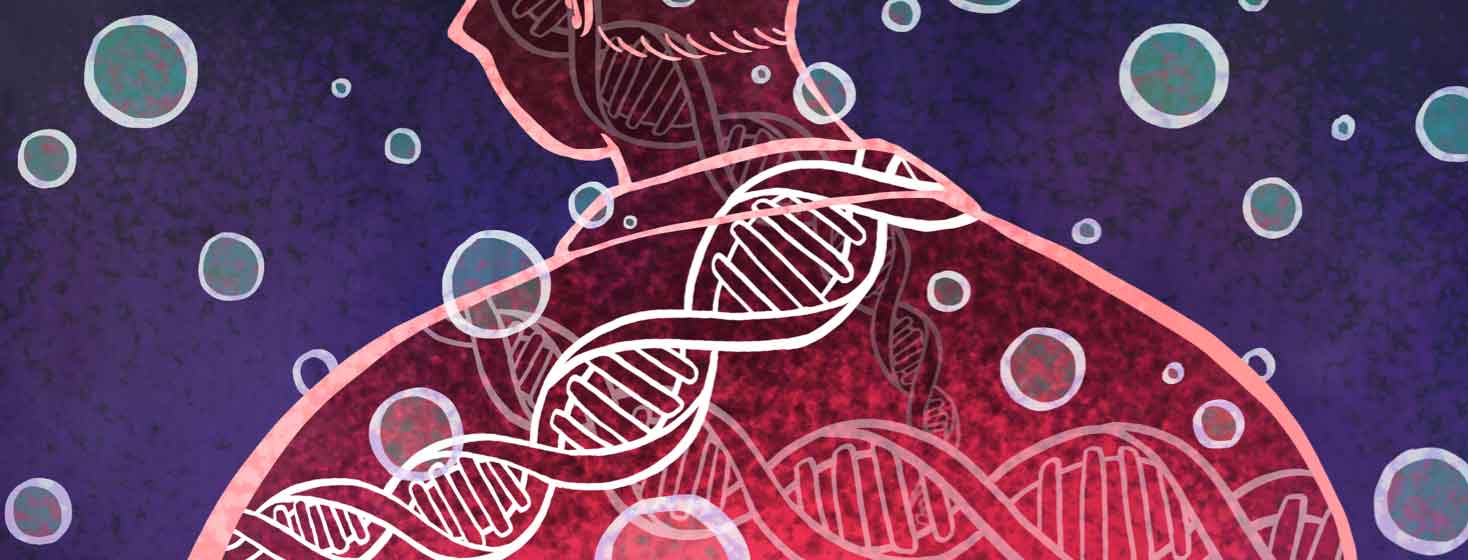Let’s Talk Genetics of Heart Failure
There has long been talk of heart disease being hereditary. Since the year 1900, researchers have learned a lot about genetics and now they are attempting to find what exact genes may be responsible for heart disease, including heart failure. So, here’s my attempt to begin the discussion about the genetics of heart failure.1
What is genetics?
Our bodies are made of tissues. For example, our hearts are made of heart muscle tissue. All the tissues of our bodies are made up of cells and each cell has a nucleus. Within this nucleus are chromosomes. Every human being has 23 pairs of chromosomes. Inside these chromosomes are DNA molecules and within the strands of DNA inside each and every cell in your body is your entire genome. A genome consists of all your genes. It is estimated that there are over 20,000 genes that encode (make) proteins. These proteins in turn tell cells what to do.1-3
In essence, your DNA contains the blueprints (your genome) for making you. The proteins they make tell cells what to do. For instance, one specific gene may encode a protein telling a stem cell to become a heart muscle cell. Another gene may encode a protein telling a stem cell to become a pacemaker cell.1
Cell discovery and replication
Human cells were discovered in 1665. Since that time, scientists have learned a lot about cells. They know that human cells can only live so long. In order to keep you alive, cells have to replicate. Every time a cell replicates, an exact copy of that cell is made which includes a copy of your DNA (your genome). When cells make exact copies of themselves it is called replication.1,4
It is rare, but sometimes errors occur during replication. During this process, a slight change may occur to a gene. Something may be added to the gene or something may be deleted which causes that gene to do something abnormal. Such happenings are called gene mutations. Another term for them is gene variations.1-2
Researchers now think it is gene variations that contribute to most of the diseases that exist in the world today. This would include both heart disease and heart failure.1
How do genes cause heart failure?
Genes do not directly cause heart failure. In fact, it is the goal of all genes (I would imagine) to be perfect. They have a protein to encode, and they encode it exactly as planned. This makes sure your heart develops exactly as planned. It also ensures that your heart functions in a healthy manner for the duration of your life.1
But, unfortunately, sometimes errors occur which can result in mutated genes or gene variants. It is these gene variants, researchers think, that are responsible for diseases like heart disease.1
Still, these gene variants alone do not cause heart disease. Or, at least this is one of the credible theories developed by researchers. They think that they may actually remain dormant when we are born. So diseases like heart disease are only caused when these gene variants are exposed to certain environmental factors.1-2
What are environmental factors?
Well, in our case, environmental factors are probably the things that increase your risk for heart disease. Two very common risk factors for heart disease are chemicals from cigarette smoke or adipose tissue. It may be exposed to bad cholesterol (LDL) or triglycerides in certain foods.1
Exposure to environmental factors like these may activate gene variants that may contribute to heart disease. These gene variants may be genes responsible for various parts of your body, including your heart and your blood vessels. They may include genes that control substances such as lipids, lipoproteins, or cholesterol - substances that may play a role in coronary artery disease.1
Tying it all together
Gene variants may cause heart diseases. Early on in life, certain gene variants may cause the heart to form improperly and this may be what causes congenital birth defects (or heart defects you are born with). Or, for those heart diseases that develop later in life, they may be caused by gene variants coupled with exposure to certain environmental factors. For most of our heart diseases that develop later in life, the latter is probably the cause.1
Genetic researchers are aware of many genes variants that may play a role in heart disease. Researchers are confident that some gene variants are linked to heart disease. There are others they assume might be linked. In either instance, this is an exciting area of science, as it appears researchers are honing in on what causes our diseases.1
The goal here is that, as they learn more, researchers will discover potential new treatment options. This in and of itself will bode well for those in our community. Still, the ultimate goal is the development of strategies for preventing our disease altogether. And, for those who are already diagnosed, a potential cure.

Join the conversation